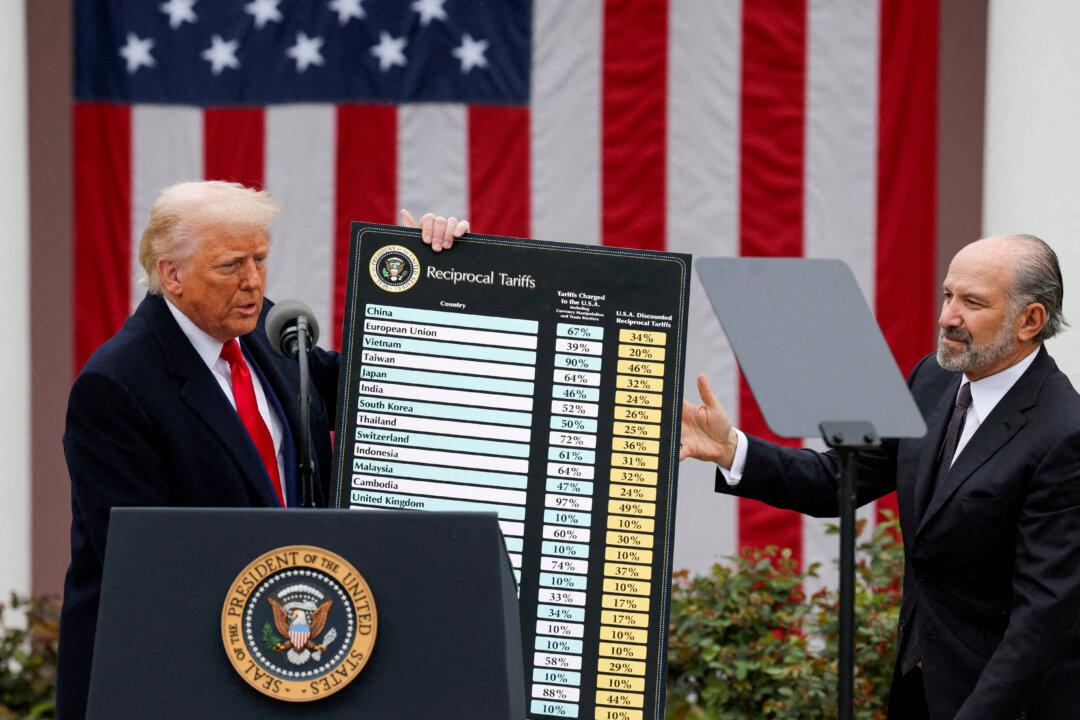A group of 12 states asked a federal court on Wednesday to put President Donald Trump’s sweeping tariffs on imports on hold, arguing he overstepped his authority by declaring a national emergency to impose levies on the majority of U.S. trading partners.
A three-judge panel of the New York-based Court of International Trade heard arguments in the lawsuit filed by the Democratic attorneys general of New York, Illinois, Oregon, and nine other states in April.




